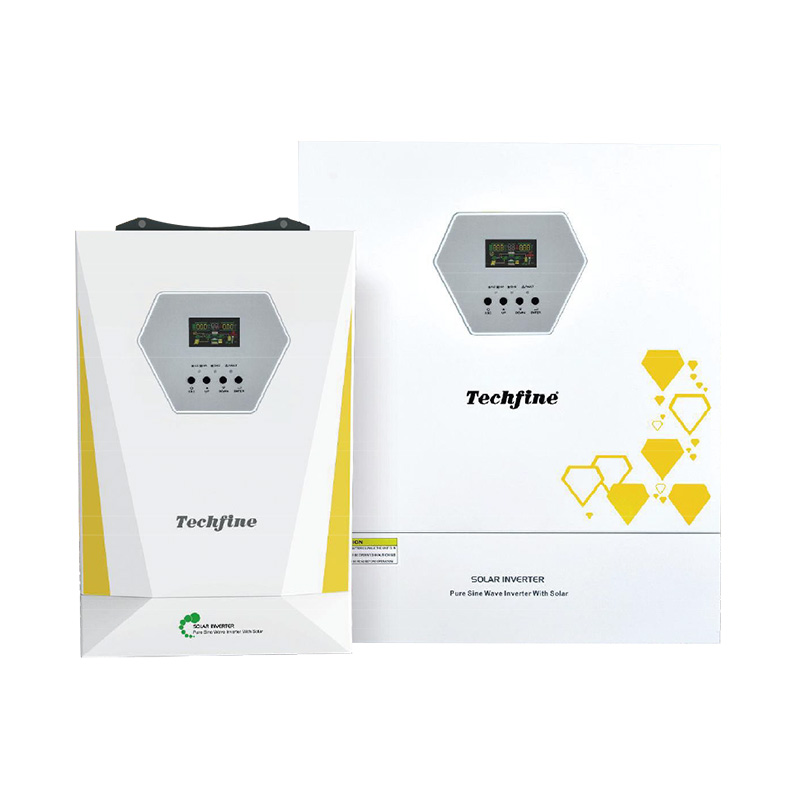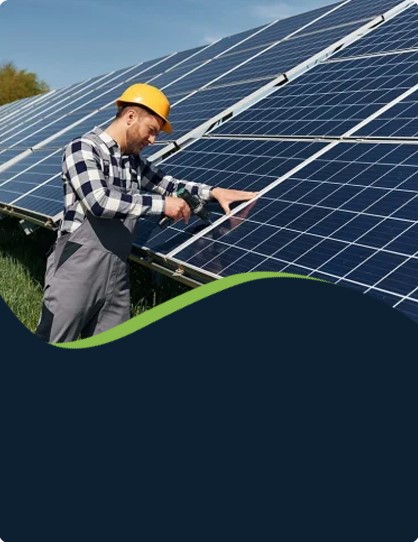
-
[email protected]

-
Building 1, No. 21 Shengfa Road, Lucheng District, Wenzhou, Zhejiang, China


Inverters play a pivotal role in converting solar-generated direct current (DC) into usable alternating current (AC) for homes, businesses, and the electrical grid.
On-grid off-grid hybrid inverters represent a significant leap in solar energy management, offering the flexibility to operate seamlessly in both grid-connected and off-grid modes. These inverters are designed to big energy utilization by integrating solar power, grid power, and energy storage systems, ensuring a reliable and efficient energy supply.
One of the primary advantages of on-grid off-grid hybrid inverters is their ability to switch between grid-connected and off-grid operation based on real-time energy needs and availability. During periods of high solar generation, excess power can be fed back into the grid or stored in batteries for later use.

Hybrid inverters also enhance energy management through advanced control systems. They can optimize the use of solar power, grid power, and stored energy based on user preferences and energy prices, reducing overall energy costs. For example, users can program the inverter to prioritize solar power during peak hours and switch to grid power during off-peak hours when rates are lower.
On-grid and off-grid inverters are designed to meet the specific needs of different solar installations, offering distinct advantages for each application. On-grid inverters are primarily used in grid-connected systems, where solar power is fed back into the electrical grid. These inverters ensure that the power generated by solar panels is compatible with the grid, maintaining a stable and reliable energy supply.
Off-grid inverters, on the other hand, are designed for standalone solar systems that operate independently of the grid. These inverters convert DC power from solar panels and batteries into AC power for local use, ensuring a continuous supply of electricity without reliance on the grid. Off-grid inverters are essential for remote locations, backup power systems, and applications where grid connection is not feasible.
Grid-tie hybrid solar inverters are designed to integrate solar power seamlessly with the electrical grid while incorporating energy storage solutions. These inverters combine the benefits of grid connectivity with the reliability of energy storage, providing a comprehensive and efficient energy management system.
One of the key features of grid-tie hybrid inverters is their ability to optimize energy usage by balancing solar power, grid power, and stored energy. During periods of high solar generation, excess power can be stored in batteries or fed back into the grid, depending on user preferences and energy prices. This flexibility ensures that solar power is utilized efficiently, reducing reliance on grid electricity and lowering energy costs.
Grid-tie hybrid inverters also offer advanced monitoring and control capabilities. Users can track the performance of their solar system in real-time, receive alerts for any issues, and optimize energy usage through smart energy management systems. This level of control and monitoring not only enhances the efficiency of the solar system but also provides valuable insights for users to make informed decisions about their energy consumption.
The evolution of solar inverters has brought about innovative solutions that cater to diverse needs and applications. On-grid off-grid hybrid inverters offer the flexibility to switch between grid-connected and off-grid operation, ensuring a reliable and efficient energy supply. On-grid and off-grid inverters provide versatile solutions for different solar installations, whether connected to the grid or operating independently. Grid-tie hybrid solar inverters integrate solar power with grid flexibility and energy storage, optimizing energy usage and enhancing resilience.
Your email address will not be published. Required field are marked*
